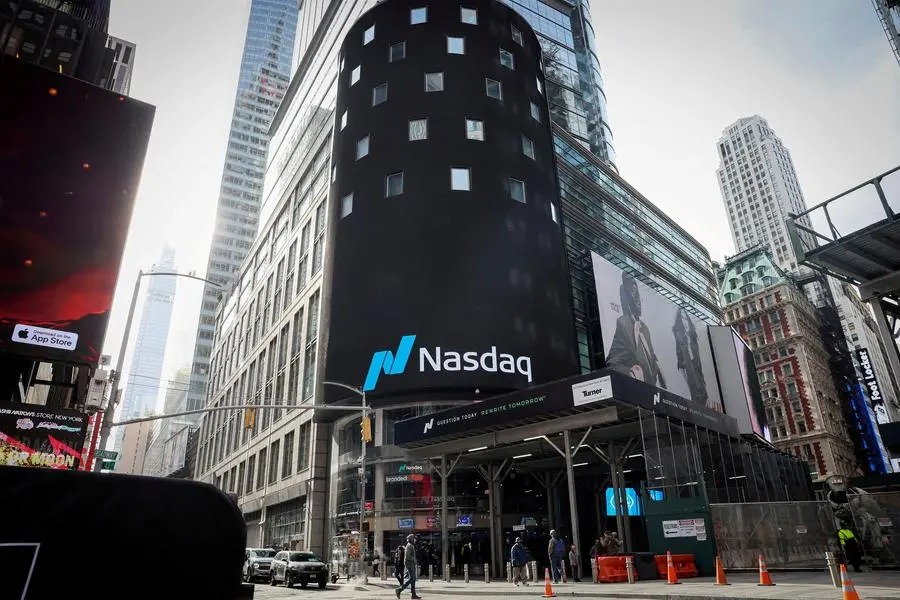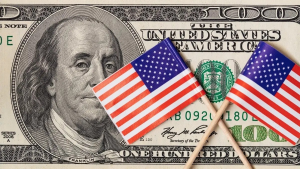Global shares held steady on Monday, as investors took geopolitical tumult in their stride, leaving oil and gold modestly higher, while the dollar edged up ahead of U.S. inflation data this week that could cement a December rate cut.
Adding another upbeat note was China's decision on Monday to alter the wording of its stance towards monetary policy for the first time since 2010, as it pledged to introduce stimulus to encourage economic growth next year.
The rapid collapse over the weekend of Syrian President Bashar al-Assad's 24-year rule complicates an already fraught situation in the Middle East. Yet the oil price, a key barometer of investor sentiment towards the region, displayed little volatility, up 1.1% to around $72 a barrel at 1250 GMT.
In France, President Emmanuel Macron had yet to name a new prime minister after Michel Barnier's minority government collapsed last week over his austere budget.
Friday's U.S. monthly employment data, which was strong enough to soothe any concerns about the resilience of the economy, but not so robust as to rule out a rate cut from the Federal Reserve next week, acted as a shock absorber. U.S. stock index futures , were around flat, suggesting no real retreat from last week's record highs for the S&P 500 (.SPX), opens new tab, Nasdaq (.IXIC), opens new tab and Russell 2000 (.RUT), opens new tab, while in Europe, the STOXX 600 (.STOXX), opens new tab edged up 0.1%.
S&P 500 and Nasdaq notched more record closing highs on Friday... with jobs data fueling expectations the Federal Reserve would cut interest rates later this month.
"It's all down to the U.S. really and we’ve got the majors (indexes) at, or on, record highs," Trade Nation market strategist David Morrison said. "The interesting thing is the 'Trump rally' has just continued, with no pullback and no opportunities for fresh longs to come in. You have to pay up or you're missing out. That is very much the feeling of this market at the moment," he said. November's payrolls report showed 227,000 jobs were created last month, compared with expectations for a rise of 200,000, while October's hurricane-distorted number was revised up.
Markets now imply an 85% chance of a quarter-point cut at the Fed's Dec. 17-18 meeting, up from 68% ahead of the jobs figures, and have a further three cuts priced in for next year. The next test is Wednesday's U.S. inflation report. The dollar index was flat at 106, as was the euro at $1.0566. The European Central Bank is widely expected to deliver a quarter-point cut on Thursday.
In Asian markets, Chinese stocks and bonds rallied after China's Politburo was quoted as saying that the country will adopt an "appropriately loose" monetary policy next year, rather than a "prudent" one, marking the first time it has changed the wording of its stance in around 14 years. Beijing said it would introduce an array of measures geared towards boosting domestic demand in 2025. The central bank has outlined five policy stances - "loose", "appropriately loose", "prudent", "appropriately tight" and "tight" - with flexibility on either side of each. The Chinese yuan strengthened in the offshore market, leaving the dollar down 0.12% at 7.2761.
South Korean stocks (.KS11), opens new tab slid 2.8%, while the won currency weakened against the dollar by 0.6% , even as authorities pledged all-out efforts to stabilise financial markets amid uncertainty over the fate of President Yoon Suk Yeol. This week is full of central bank meetings, aside from the ECB's. The Swiss National Bank could cut rates by as much as half a point given slowing inflation, as could Canada's central bank when it meets on Wednesday.
The Reserve Bank of Australia meets on Tuesday and is one of the central banks expected to hold fire, while Brazil's central bank is set to hike again to contain inflation.
With geopolitical uncertainty high and conflicting signals from hard and soft data, monetary policy remains the only game in town to support economic activity, especially in the absence of strong political leadership in Paris and Berlin," said Barclays economist Christian Keller.










